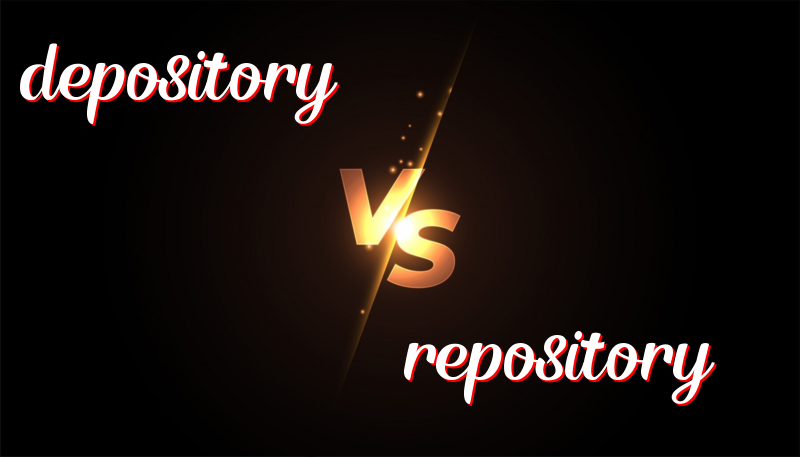Understanding the Difference: Depository vs Repository
Depository vs Repository
A “depository” and a “repository” are two words with similar meanings. Both are places for keeping or storing things. But there are small differences between them.
Depository
The word “depository” comes from the late Latin word “depositōrium”, meaning a place where something is deposited or stored for safekeeping.
We use this word when we refer to a place where valuable things are stored and kept safe. Banks, libraries, and museums can be depositories. We can deposit money in a bank, books in a library, or artefacts in a museum.
Here are some sentences to show how we use “depository”:
- My sister works at a bank, which is a depository for money.
- The library is an excellent depository for books.
- The museum is a depository for historical artifacts.
- We chose a safe depository for our family jewels.
- I deposited my old notebooks in our school’s depository.
Repository
The word “repository” comes from the Latin word “repositōrium”, meaning a place where things are placed or stored.
A repository is also a place where things are stored or kept; but, we often use this word when talking about a place where a large amount of information is kept. A library, a database, a website – all these can be repositories.
Here are some sentences to show how we use “repository”:
- The library is a repository of knowledge.
- The database serves as a repository for all our customer information.
- Wikipedia is a vast repository of information on many topics.
- The old man’s brain was a repository of interesting facts.
- Our school’s website is a repository for all our schedules and announcements.
Trick to remember the difference
A good way to remember the difference is the word “deposit” in “depository”. When you deposit something, it usually is an item of value, like money or goods. Therefore, a depository often holds valuable items. A repository holds things too, but it’s more often used for information.
Summary
In simple words, both depository and repository are places for storage. A depository is a place where valuable things are kept safe, like a bank or a museum. A repository is a place where a lot of information is stored, such as a library or a database. The trick is to remember that you deposit valuable items in a depository, and a repository holds repositories of information.

Leave a Reply
You must be logged in to post a comment.